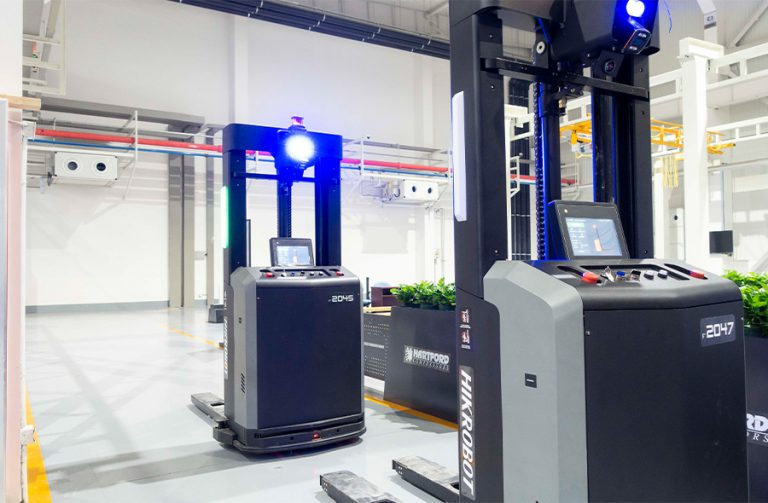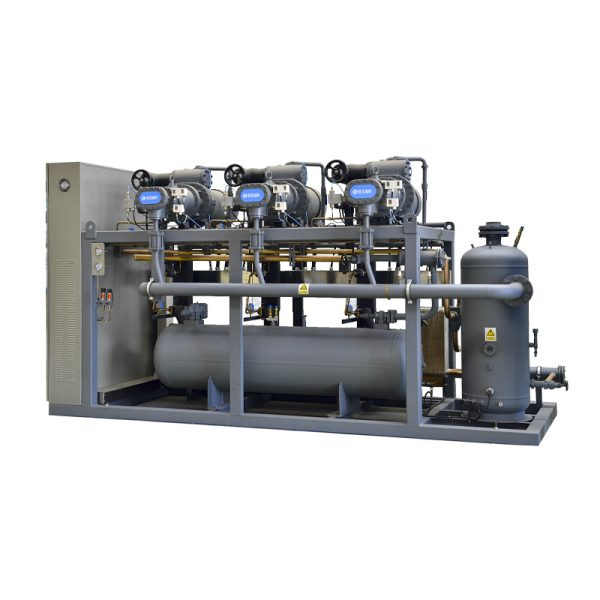La refrigeración industrial no es solo una toma más grande de la refrigeración comercial. Es un campo complejo que necesita precisión precisa, durabilidad robusta y configuraciones personalizadas para impulsar operaciones masivas. Los sistemas comerciales, construidos para tiendas o restaurantes, se adhieren a diseños más simples y disponibles. Los industriales, sin embargo, están diseñados para hacer frente a trabajos pesados y ininterrumpidos que los refrigeradores estándar no pueden tocar. Para las empresas que buscan un socio sólido para manejar estos sistemas difíciles, MOON-TECH ofrece una amplia gama de respuestas. Comenzando en 1956, MOON-TECH sirve a clientes globales con soluciones de refrigeración y calefacción, además de proyectos llave en mano. Con un alcance en más de 120 países y regiones, y equipos como compresores de tornillo, enfriadores y otras unidades, MOON-TECH se destaca en sistemas de energía inteligentes y verdes. Su habilidad para el trabajo a medida, el ahorro de energía y la ingeniería afilada lo convierten en una opción ideal para las necesidades industriales.

¿Cómo definen los escenarios de aplicación la diferencia entre refrigeración industrial y comercial?
Donde se utilizan los sistemas de refrigeración da forma a su construcción, tamaño y resistencia. La refrigeración comercial se adapta a lugares pequeños como comestibles o comedores. La refrigeración industrial, por otro lado, se hace para grandes necesidades de producción y almacenamiento en campos como el procesamiento de alimentos, el envío o la industria pesada.
Requisitos de procesamiento y almacenamiento a gran escala
Las instalaciones industriales necesitan manejar toneladas de bienes que se estropean rápidamente o materiales que deben permanecer fríos. Tome el CO2: es ideal para trabajos a bajas temperaturas como congeladores o salas de refrigeración rápida en plantas de alimentos congelados. Estos lugares requieren una refrigeración rápida y enormes espacios de almacenamiento, mucho más allá de lo que pueden hacer los refrigeradores comerciales. Imaginen una planta de envasado de pescado que enfría miles de libras al día. El equipo comercial se daría por vencido rápidamente.
Operación continua en entornos duros
Los refrigeradores comerciales pueden apagarse por la noche o funcionar ligeramente. ¿Sistemas industriales? Molen las 24 horas del día, los 7 días de la semana, en condiciones difíciles: calor ardiente, aire salado o zonas de producción arriesgadas. Un hipo podría arruinar montones de productos o detener el trabajo. En una fábrica química, por ejemplo, el enfriamiento no puede vacilar, o un lote entero podría perderse.
Integración con líneas de producción complejas
El enfriamiento industrial se adapta a grandes flujos de trabajo automatizados. Un proyecto de almacenamiento automático en frío a gran escala, por ejemplo, combina sistemas de refrigeración, controles de seguridad, seguimiento y transporte. Esto mantiene las líneas de producción, los camiones de entrega y los controles de calidad funcionando sin problemas. Los refrigeradores comerciales no necesitan este trabajo en equipo, solo mantienen frías las bebidas de un café.
¿Por qué el diseño de sistemas es más complejo en la refrigeración industrial?
Montar un sistema de refrigeración industrial no se trata de recoger piezas listas. Cada uno debe adaptarse a las necesidades exactas del cliente, el entorno de trabajo y los planes de crecimiento.
Configuraciones modulares y personalizadas
Los sistemas industriales a menudo utilizan diseños flexibles y modulares para adaptarse a empresas en crecimiento o espacios estrechos. MOON-TECH elabora soluciones de refrigeración y calefacción totalmente personalizadas para todo tipo de industrias. Esto permite que un sistema crezca con una empresa, como agregar enfriadores a una planta láctea a medida que se hace más grande, sin una refacción completa. Ahorra dinero y estrés.
Sistemas Avanzados de Control y Monitoreo
Mantener un seguimiento de los sistemas en tiempo real es una necesidad para las configuraciones industriales. El Unidad de compresor de refrigeración de tornillo semihermético tiene controles integrados que enlazan a los sistemas en la nube. Esto detecta los problemas temprano y reduce el uso de energía. En una planta de carne, estos controles pueden detectar un pico de temperatura y arreglarlo antes de que el producto se deteriore.

Enfase en la eficiencia energética y la sostenibilidad
Las facturas de electricidad pueden golpear duro. Con un mayor enfoque en la protección del planeta, el sistema de refrigeración de CO2 de MOON-TECH ahorra energía y apoya los objetivos ecológicos. En un almacén de almacenamiento en frío, esto podría reducir miles de costos anuales de electricidad mientras mantiene bajas las emisiones. Es práctico y amigable con la tierra.
¿Qué papel juega la capacidad del equipo para distinguir los dos sistemas?
No se trata solo del tamaño. Los sistemas industriales manejan cargas más grandes, funcionan más tiempo y manejan tareas de refrigeración más difíciles que los comerciales.
Alta carga de refrigeración y ciclos de trabajo extendidos
Las aplicaciones industriales requieren cargas de enfriamiento significativamente mayores debido a mayores volúmenes de productos procesados o almacenados. Estos sistemas también deben soportar ciclos de trabajo prolongados, a menudo funcionando las 24 horas del día, los 7 días de la semana, sin degradación del rendimiento.
| Especificación | Refrigeración comercial | Refrigeración industrial |
| Carga de enfriamiento | Moderado (rango de kW) | Alto (cientos a miles de kW) |
| Ciclo de trabajo | Intermitiente | Continuo |
| Ámbito de aplicación | Venta al por menor/Servicio | Fabricación/Procesamiento |
| Redundancia del sistema | Mínimo | Crítico (configuraciones N 1 o N 2) |
| Flexibilidad de diseño | Estandarizado | Personalizado |
Uso de compresores y refrigeradores de alta capacidad
Los compresores comerciales no pueden satisfacer las necesidades industriales. Refrigeradores industrialesal igual que la de MOON-TECH, afrontar trabajos de refrigeración masivos con facilidad. Utilizan refrigerantes como R744 (CO2) y una potencia de refrigeración de 74,8 kW a 1652 kW. En una fábrica de aperitivos congelados, estos refrigeradores mantienen las líneas frías sin problemas.
Soluciones escalables para la expansión de instalaciones
Las fábricas a menudo crecen paso a paso. Los bancos modulares de compresores o los bucles expandibles del enfriador permiten que el enfriamiento se mantenga al día con el crecimiento. Un centro de envío podría agregar más almacenamiento en frío con el tiempo, y estas configuraciones flexibles lo hacen sencillo sin una revisión completa.
¿Cómo varían las especificaciones de los componentes entre los dos tipos?
Las piezas de refrigeración industriales son más resistentes e inteligentes que las comerciales. Están construidos para durar y manejar tareas precisas y exigentes.
Compresores pesados con larga vida útil
Los compresores industriales, como la Unidad de Compresor de Refrigeración de Tornillo Semi-Hermético, están hechos para uso continuo. Con menos piezas para desgastarse, duran más tiempo, incluso en entornos duros. En una planta química, estos pueden funcionar años con poco mantenimiento.
Enfriadores de grado industrial para refrigeración de gran volumen
Los enfriadores industriales trabajan en amplios intervalos de temperatura para tareas como congelación por explosión o enfriamiento de cubos de cerveza. A menudo usan CO2 o líquidos de baja temperatura para clavar el trabajo. Un refrigerador comercial se freía tratando de mantenerse al día.
Equipo diseñado a medida para necesidades especializadas
- Spiral IQF: Ideal para alimentos congelados rápidamente
- Túnel IQF: Para congelación de flujo continuo
- Congelador de lecho fluidizado: Adecuado para alimentos con partículas pequeñas
- Congelador de placas: Se utiliza ampliamente en las industrias de mariscos
Estos componentes especializados rara vez se encuentran en configuraciones comerciales, pero esenciales en procesos industriales donde el factor de forma del producto dicta la elección del equipo.
¿De qué manera difieren los requisitos de instalación y mantenimiento?
Los sistemas industriales son mucho más difíciles de establecer y mantener que los comerciales. Necesitan planificación experta y trabajo en equipo.
Servicios de ingeniería e integración de sistemas en el sitio
Los grandes proyectos necesitan ingenieros en el sitio para adaptar los sistemas a espacios estrechos o flujos de trabajo complejos. A diferencia de los refrigeradores comerciales que se conectan fácilmente, las configuraciones industriales requieren tuberías y controles personalizados. Un nuevo almacén de almacenamiento en frío podría tomar semanas de ajustes para ser perfecto.
Mantenimiento preventivo para operaciones críticas
Un cierre en entornos industriales podría costar una fortuna. El mantenimiento utiliza sensores y datos para detectar problemas temprano. En un centro de envío, las alertas en tiempo real pueden arreglar un compresor antes de que falle, ahorrando mercancías de deteriorarse.
Formación y soporte técnico para clientes industriales
Los trabajadores necesitan capacitación para manejar controles sofisticados y detectar problemas. MOON-TECH ofrece programas para que los operadores puedan administrar sistemas, comprobar medidores y actuar en caso de alertas. En una planta láctea, esto mantiene la leche a la temperatura adecuada, no importa lo que suceda.
¿Por qué MOON-TECH debe ser considerado un socio preferido para la refrigeración industrial?
Elegir un socio con experiencia real y opciones personalizadas es clave para grandes proyectos de refrigeración.
Ganancias de eficiencia operativa a largo plazo
Los diseños de ahorro de energía reducen las facturas de energía en gran medida. Un sistema sólido, como el de MOON-TECH, se paga rápidamente al usar menos electricidad. En una planta de alimentos congelados, esto podría ahorrar miles al mes.
ROI a través de la optimización de procesos
Cuando el enfriamiento se adapta a las líneas de producción, aumenta la calidad y reduce el deterioro. Un procesador de mariscos podría ahorrar toneladas de camarones de ir mal, aumentando las ganancias. No es solo enfriamiento, hace que toda la operación sea mejor.
Experiencia comprobada en diversas industrias
MOON-TECH ha trabajado con productos lácteos, químicos y más, elaborando sistemas artesanales que se ajustan a las necesidades de cada industria. Una empresa puede necesitar enfriamiento ultrapreciso, mientras que otra necesita energía en bruto: MOON-TECH hace ambas cosas.
Red de Soporte Global y Excelencia Técnica
Con nueve parques industriales que sirven a más de 120 países y regiones, MOON-TECH ofrece Ayuda confiableYa sea una fábrica en Asia o Sudamérica, su equipo puede solucionar problemas o planificar actualizaciones, convirtiéndolos en un socio de confianza.
Preguntas frecuentes
Q1: ¿Qué industrias requieren típicamente refrigeración industrial?
R: El procesamiento de alimentos (como carne o lácteos), las plantas químicas, la logística de almacenamiento en frío, los mariscos y la minería necesitan un fuerte enfriamiento para los grandes trabajos.
Q2: ¿Cómo mejora el CO2 la sostenibilidad en aplicaciones industriales?
R: Los refrigerantes de CO2 dañan al planeta menos que las opciones más antiguas. Los sistemas de CO2 de MOON-TECH aumentan la eficiencia y reducen las emisiones en grandes proyectos.
Q3: ¿Se puede actualizar un sistema de amoníaco existente de manera rentable?
R: Sí. El uso de los equipos de amoníaco existentes lo más posible mantiene los costos bajos y acelera las actualizaciones.

